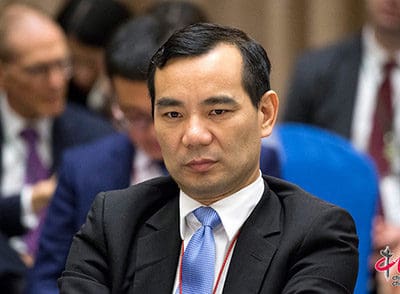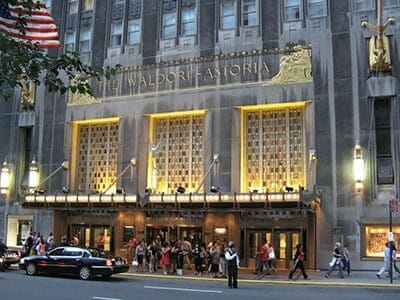
Anbang chairman Wu Xiaohui’s troubles deepen with news of forced asset sales
Anbang Insurance chairman Wu Xiaohui may have disappeared into government detention in early June, but at least someone from the once high-flying Chinese insurer was available this week to deny reports of a forced sale of the company’s overseas holdings.
Bloomberg reported early this week that Chinese authorities are pressuring Anbang to sell its more than $10 billion portfolio of foreign assets and bring the proceeds back home to China, amid a crackdown on some of the nation’s biggest outbound investors.
However, Anbang dismissed the claims, saying via its WeChat social media account, “Anbang at present has no plans to sell its overseas assets.” The unattributed message added that, “Currently, Anbang’s various businesses and operations are all normal, and the company has ample cash and sufficient solvency capabilities.”
Anbang’s chairman has not been heard from in the nearly two months since he was taken away, and no date has been given for his release. The company’s outbound shopping spree has already been on hold following a series of run-ins with China’s regulators.
The unconfirmed Bloomberg report provides no further details about the government request, including how quickly Anbang would be expected to sell off its overseas portfolio.
Anbang’s $10B Overseas Portfolio Is at Play

Now might be a good time for a low-ball offer on the Waldorf Astoria
Anbang could face heavy losses if the company is forced to unload its trophy assets at fire-sale prices, which could prove politically embarrassing.
Anbang first made international headlines in October 2014 when the previously obscure insurance group agreed to shell out $1.95 billion for Manhattan’s Waldorf Astoria hotel. The hospitality deal marked the beginning of a high-profile shopping spree which saw Anbang pick up billions of dollars worth of office and hotel assets in the US and Canada, as well as paying some $5.5 billion to acquire Chicago-based Strategic Hotels & Resorts from Blackstone in a deal forged last March.
The insurance giant has also reportedly scooped up more than 500 euros ($558 million) of office properties in the Netherlands last October through a Dutch subsidiary, and a controlling stake in South Korea’s Tong Yang Life Insurance for more than 1.1 trillion won ($969 million) in September 2015. Anbang is reported to be battling a lawsuit over a missed installment payment for the Korean insurer.
Anbang may face challenges in finding willing buyers, as the trophy-sized scale of much of its overseas portfolio, coupled with the premium rates that the insurer paid for the assets, could make for challenging sales conditions. The Waldorf Astoria, for instance, was reportedly valued at $1.2 to $1.3 billion before Anbang picked it up at more than a 33 percent premium.
Potential Sell-Off Just Anbang’s Latest Woe
Since last year, Anbang has been targetted by Chinese regulators for its questionable financial practices including selling risky short-term, high-yield life insurance policies to fund its acquisition binge. Anbang faced regulatory scrutiny as early as March 2016, when it abruptly walked away from a $14 billion bid for Starwood Hotels and Resorts, the US-based hospitality chain.
All of Anbang’s overseas dealings, including ongoing acquisitions and financing of existing assets, have been frozen since Wu’s detention in June, Reuters reported, citing a source familiar with the matter. The China Insurance Regulatory Commission (CIRC) is now said to be overseeing the company’s daily operations.
China Crackdown Drama Intensifies
A widening crackdown on reckless outbound investment has recently snared other mainland corporate heavyweights including Dalian Wanda Group, Fosun International and HNA Group, which since June have been subjected to special scrutiny by China’s banking regulators. Wanda boss Wang Jianlin said his conglomerate would focus its investments on China in the future, after President Xi Jinping reportedly signed off on punitive lending restrictions to the commercial property giant.
Hainan-based conglomerate HNA now risks seeing some $2 billion in deals currently in progress fall apart in the US and southeast Asia as questions mount over the group’s ownership structure and its ability to follow through on a flurry of cross-border mega-deals.
On the other hand, investment group Fosun recently teamed up with Beijing Sanyuan Foods to buy French margarine maker St Hubert for $733 million, raising questions about how consistently China will enforce its clampdown on the overseas deal-makers in question.
Leave a Reply